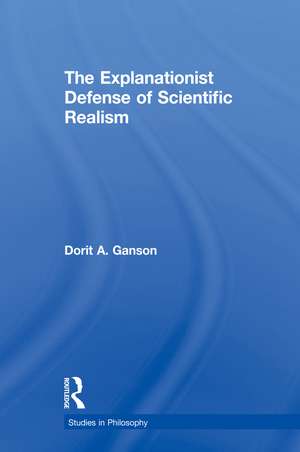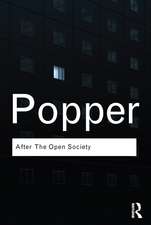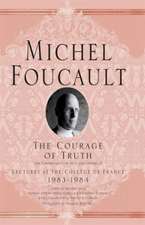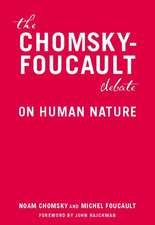The Explanationist Defense of Scientific Realism: Studies in Philosophy
Autor Dorit A. Gansonen Limba Engleză Paperback – 27 ian 2017
| Toate formatele și edițiile | Preț | Express |
|---|---|---|
| Paperback (1) | 449.41 lei 6-8 săpt. | |
| Taylor & Francis – 27 ian 2017 | 449.41 lei 6-8 săpt. | |
| Hardback (1) | 1004.34 lei 6-8 săpt. | |
| Taylor & Francis – 25 ian 2001 | 1004.34 lei 6-8 săpt. |
Din seria Studies in Philosophy
- 9%
 Preț: 1037.82 lei
Preț: 1037.82 lei - 9%
 Preț: 1004.93 lei
Preț: 1004.93 lei -
 Preț: 487.86 lei
Preț: 487.86 lei -
 Preț: 489.99 lei
Preț: 489.99 lei -
 Preț: 480.28 lei
Preț: 480.28 lei -
 Preț: 482.74 lei
Preț: 482.74 lei - 18%
 Preț: 1056.28 lei
Preț: 1056.28 lei -
 Preț: 478.71 lei
Preț: 478.71 lei - 18%
 Preț: 949.78 lei
Preț: 949.78 lei -
 Preț: 481.58 lei
Preț: 481.58 lei - 31%
 Preț: 763.39 lei
Preț: 763.39 lei -
 Preț: 482.35 lei
Preț: 482.35 lei -
 Preț: 488.12 lei
Preț: 488.12 lei -
 Preț: 491.68 lei
Preț: 491.68 lei -
 Preț: 436.75 lei
Preț: 436.75 lei - 18%
 Preț: 1056.28 lei
Preț: 1056.28 lei - 18%
 Preț: 1056.28 lei
Preț: 1056.28 lei -
 Preț: 482.82 lei
Preț: 482.82 lei -
 Preț: 479.67 lei
Preț: 479.67 lei -
 Preț: 488.33 lei
Preț: 488.33 lei -
 Preț: 485.24 lei
Preț: 485.24 lei -
 Preț: 434.84 lei
Preț: 434.84 lei -
 Preț: 482.35 lei
Preț: 482.35 lei -
 Preț: 480.07 lei
Preț: 480.07 lei -
 Preț: 444.23 lei
Preț: 444.23 lei - 18%
 Preț: 1106.81 lei
Preț: 1106.81 lei -
 Preț: 465.69 lei
Preț: 465.69 lei - 18%
 Preț: 1054.71 lei
Preț: 1054.71 lei - 18%
 Preț: 1056.71 lei
Preț: 1056.71 lei -
 Preț: 483.20 lei
Preț: 483.20 lei -
 Preț: 356.18 lei
Preț: 356.18 lei -
 Preț: 484.47 lei
Preț: 484.47 lei -
 Preț: 488.33 lei
Preț: 488.33 lei -
 Preț: 222.03 lei
Preț: 222.03 lei -
 Preț: 444.93 lei
Preț: 444.93 lei
Preț: 449.41 lei
Nou
Puncte Express: 674
Preț estimativ în valută:
85.99€ • 89.78$ • 71.17£
85.99€ • 89.78$ • 71.17£
Carte tipărită la comandă
Livrare economică 05-19 aprilie
Preluare comenzi: 021 569.72.76
Specificații
ISBN-13: 9781138969360
ISBN-10: 1138969362
Pagini: 224
Dimensiuni: 152 x 229 mm
Greutate: 0.45 kg
Ediția:1
Editura: Taylor & Francis
Colecția Routledge
Seria Studies in Philosophy
Locul publicării:Oxford, United Kingdom
ISBN-10: 1138969362
Pagini: 224
Dimensiuni: 152 x 229 mm
Greutate: 0.45 kg
Ediția:1
Editura: Taylor & Francis
Colecția Routledge
Seria Studies in Philosophy
Locul publicării:Oxford, United Kingdom
Notă biografică
Dorit A. Ganson is Assistant Professor of Philosophy at Oberlin College.
Cuprins
Preface; 1. Introduction; I. Explanationism; I.i The Debate About Realism and the Constraints of Rationality; I.ii Versions of Explanationism/Realism; I.iii Externalist vs. Internalist Explanationist Approaches to Defending Realism; II. Miller's Internalist Explanationism; II.i Introducing Topic-Specific Truisms; II.ii The Role of Truisms in the Explanationist Defense of Realism; II.iii Why Truisms are Independent Marks of Rationality; III.iv Unfinished Business in Miller's Program; 2. Acausal Models of Explanation; II.i Hume's Legacy and the Deductive-Nomological Model; II.ii From the Inductive-Statistical Model to the Statistical Relevance Approach; III. The Statistical Relevance Model of Explanation; III.i An Outline of the Model and some Refinements; III.ii The Requirement of Objective Homogeneity; III.iii Salmon's Acausal Criteria for Admissible Selection Rules and Ensuing Problems; III.iv Difficulties in the Identification of Causal Relevance with Statistical Relevance; 3. Van Fraassen's Arguments Against Inference to the Best Explanation; I. Van Fraassen's Constructive Empiricism; II. Building a Case Against Explanationism: The Short Arguments; II.i The Scientific Image; II.ii Laws and Symmetry; III. The Bayesian Peter Objection; III.i Van Fraassen's Dutch Book Argument; III.ii Flaws in the Argument; III.iii Reconciling Explanationism with Bayes' Theorem; 4. Van Fraassen's Dutch Books; I. A Philosophical Application of the Probability Calculus: Using Dutch Book Arguments to Derive Rationality Constraints; II. The Principle of Reflection; III. The Temporally Extended Principle of Reflection; IV. A Prohibition Against Assigning A Probability Value to some Special Conditional Propositions; 5. Varieties of Explanationism and Fine's Critique; I. Smart's Wouldn't It be a Miracle? Argument; II. Boyd's Arguments for Realism; II.i Boyd's Inference to the Best Explanation; II.ii Rival Explanans and Explanandum; II.iii The Circularity Objection and the Realist Package; III. Naturalized vs. Non-naturalized Realism; 6. The Transcendental Road to Realism; I. Fine's Criticisms of Miller's Realism; II. The True Source of Unreasonable Doubt; III. Why Taking on Isn't Good Enough; IV. Salvaging Realism about Molecules; Appendix; I. The Ralist Account of Broad Empirical Scope (and its Bayesian Justification); II. Van Fraassen's UnBayesian Rejection of Broad Scope as an Epistemically Relevant Virtue; Works Cited; Index


















